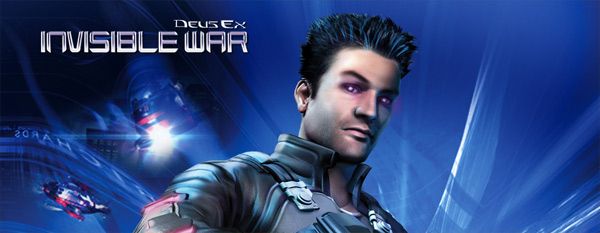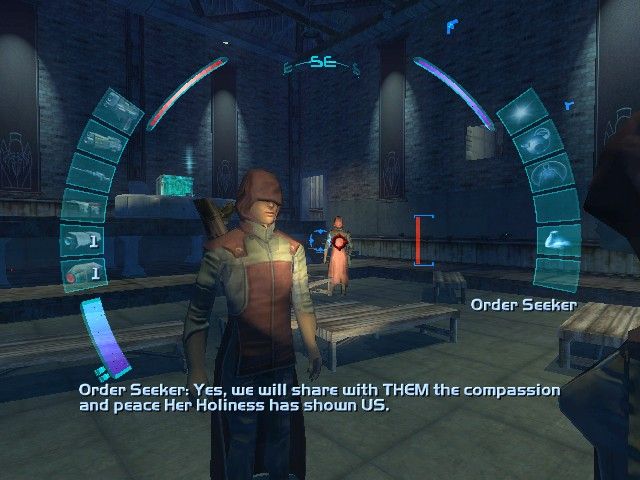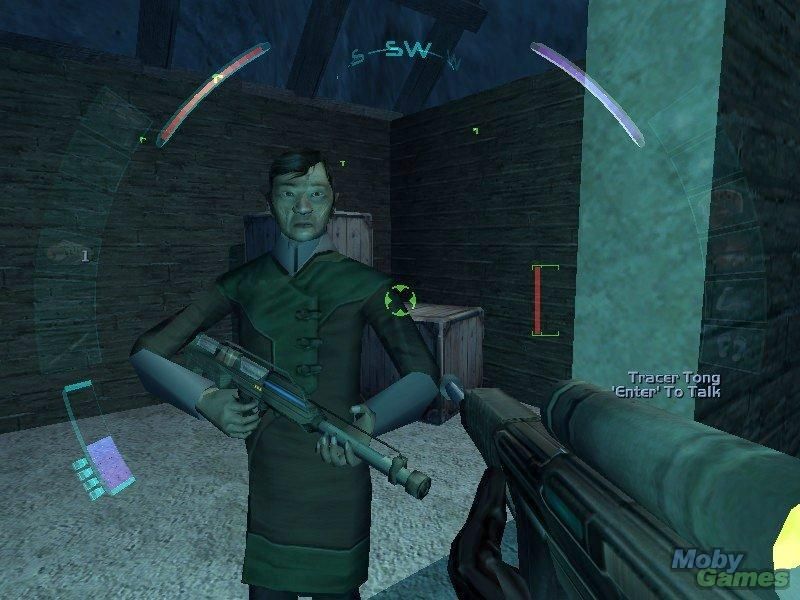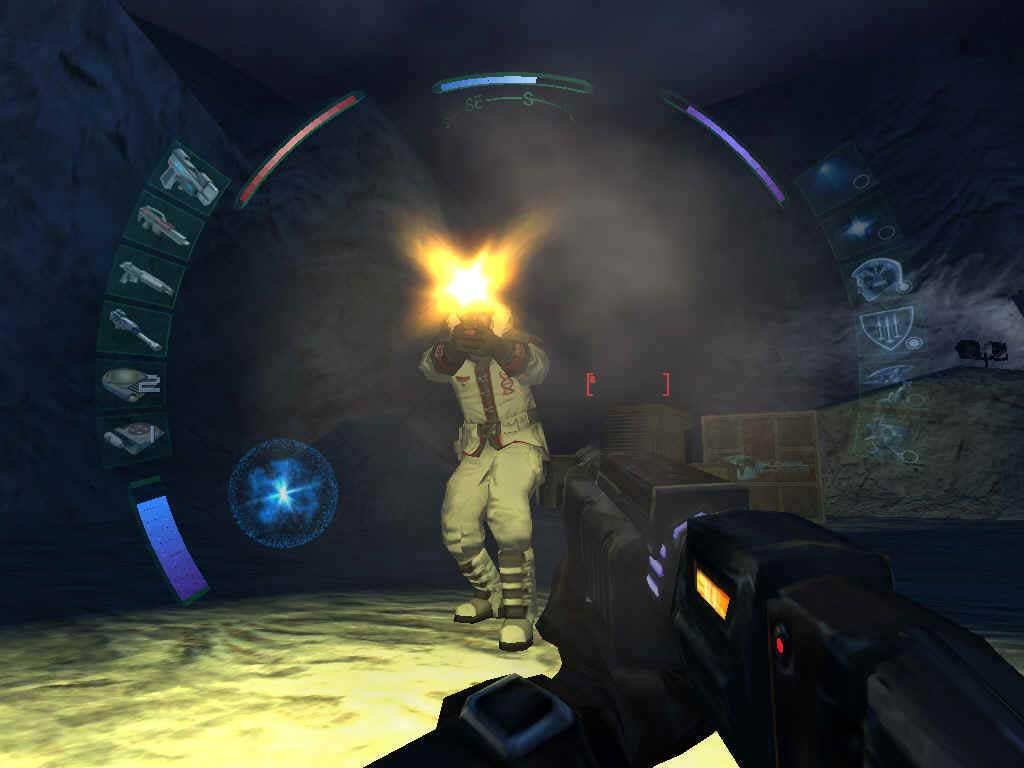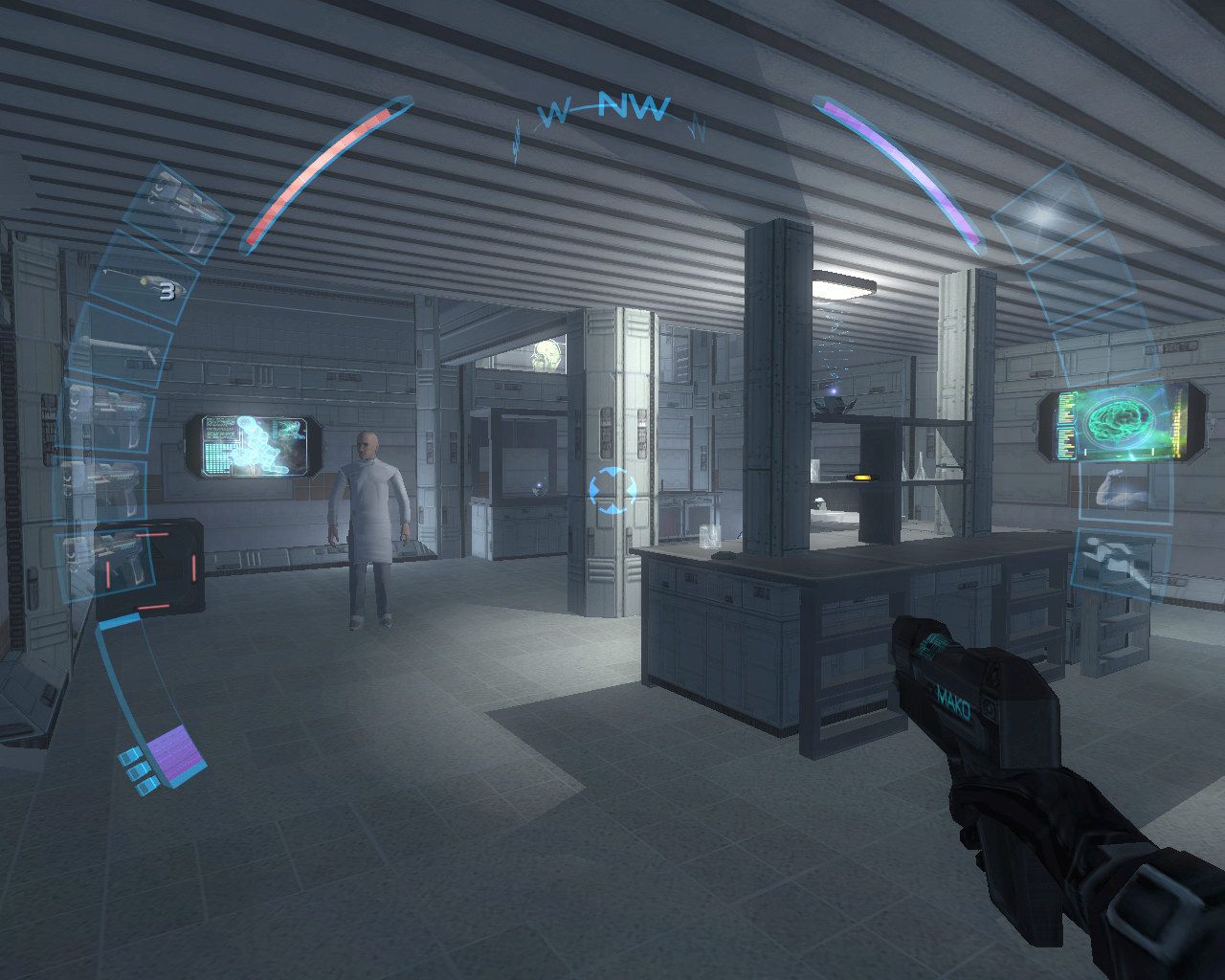Last week, I took a look back to see why the first Deus Ex was such a widely well regarded and still admired game. It boiled down to a combination of a great story, solid mechanics, a hybrid RPG/FPS system and a tendency to treat the player with respect. Deus Ex: Invisible War is not quite so loved. This past week, I decided to play the game and see why.
Deus Ex: Invisible War was well regarded by critics. The game on PC currently stands at an 80 on Metacritic. While that is a solid score that suggests the game is good, if I hadn’t played through the first Deus Ex, it might have been. Part of Invisible War’s problem is that it doesn’t feel like it should be a Deus Ex game. Sure, the title is there and there are characters and a slew of references to the first game, but the gameplay, the storytelling and a lot of other aspects just aren’t there. After a playthrough, it is quite easy to see why Invisible War is not just frowned upon by many gamers, but why Eidos Montreal decided to use Invisible War as a cautionary tale when developing Human Revolution.
Invisible War isn’t necessarily a bad game; it just isn’t a very good one. The biggest issue I have with Invisible War is that it is so incredibly simplified, to the point of being dumbed down. The inventory system, the augmentation system, the story, the HUD, ammo, conversations, choices, lock picking, looting bodies, hacking and so on is just dull because it is so one-dimensional. Everything Deus Ex did that was unique in 2000, Invisible War ignored in 2003. The biggest casualty is the RPG system, which is practically nonexistent. While you can upgrade your augmentations, you have fewer augmentations with which to work. Before I was halfway through the game, I had each augmentation slot filled and two-thirds of the way through the game I had them all fully upgraded and had a full 8 biomod canisters (used to install and upgrade – another simplification) to spare if I decided I wanted a change. But there were no skills to increase and as such, there was no reason to complete side quests, because there was usually no reward, short of credits, which were useless because they can be found lying around everywhere in the game. I ended with just over 5000 of the things, and I was not very frugal.
One of the biggest problems with this vast oversimplification is that there is just no mystery to the game. The twists and turns, and the unexpected character allegiances were a large part of what made Deus Ex special. But in Invisible War, nearly every character is very open with their allegiances, even at the beginning of the game. Characters can live and die, but you never get enough time to remotely care for them. I finished the game in just under 6 hours, and I did every sidequest and spoke to every named character I could. The worst part is that the game never tries to make you care about characters. One character is supposedly your best friend, but it never feels that way, and after the opening sequence, she literally disappears for the remainder of the game, only coming back in the last hour and a half or so. Even the characters that return from the original Deus Ex are dumbed down and uninteresting. Simply put, the game never makes the connection with the player that the original did.
The lack of mystery also affects the story as well. Not only are characters blunt and poorly written, Invisible War’s story also feels lazy. The core story actually isn’t terrible, but its execution is; it tries to question what makes us human, but never gets around to it, instead settling for very obvious factions and simple choices. To boot, none of the factions are ever detailed past their basic motivations. One faction is the religious one that wants to keep humans pure, the other is based around greed and the final faction wants to unite humanity in a global consciousness. Because the game never takes the time to really develop why I should actually care what any of the factions think, as a result, the finale of the game is very weak. They try, with pseudo-intelligent dialogue where your character attempts to question them, but the game just never pans out, as any choice you make falls flat. You can kill important members of factions, and that faction will still ask you to perform missions for them, when they clearly have plenty of other agents who can do it. There is some pretense about your genetic code being necessary at parts, but even then, it doesn’t really make sense because the factions all end up where you are anyway.
While the story and characters are weak, these can usually be excused in the essence of good gameplay (see: Call of Duty: Modern Warfare 2). The problem is, after playing the first Deus Ex, the gameplay doesn’t stand up. The biggest problem with the gameplay is that the inventory system is so incredibly simplified. I found myself with more guns than I knew what to do with at the end of the game because there is no “suitcase-style” inventory system similar to the first game (or a more recent example of Resident Evil 4) that forces you to pick your inventory wisely. Instead you just have standard inventory slots. It was a step backwards, because when combined with the RPG system, the game really encouraged you to think like a secret agent and specialize in certain things. Invisible War attempts to make up for this with its awful universal ammo system. That means that your rocket launcher uses the same ammo clip as your pistol. Aside from the guns not having any real power, universal ammo simultaneously makes the game less tactical and more frustrating. While you do have to conserve ammo, melee weapons are pretty useless and guns run out of ammo with surprising speed, especially towards the end when you begin almost exclusively fighting power armored cyborgs that are nearly immune to bullets. The game is less tactical because you no longer need to select the best ammo for the job. It is more frustrating because when you run out of ammo for your sniper rifle and you switch to a pistol or your shotgun, you’re also out of ammo for your pistol and your shotgun. This did lead me to some pretty creative solutions involving the awful AI, such as getting them to shoot walls next to them with rocket launchers, but it wasn’t fun.
The thing about Invisible War is that a lot of the core components of what made Deus Ex great are there. There is a conspiracy, though not a very interesting one; there is still hacking, though there is no longer a time limit or any urgency; there are still augmentations, though you don’t get as many; and there are still side quests, they just don’t have a point. The most disappointing aspect of the game was its linearity. There is no level that feels like Hong Kong or even Hell’s Kitchen. The world feels empty and lifeless. Sure there are two or three people on the streets, but Deus Ex made Hong Kong feel alive; Invisible War makes Cairo and Seattle seem dead. That is where my big fears about Human Revolution stem from. On paper, Invisible War is a proper sequel to Deus Ex, minus the RPG system. But even the branching levels are broken, because the game ends up being so linear that you end up in the same places and end up in combat anyway. Human Revolution is an easy game to screw up, because even if the pieces are there, they can still be put together incorrectly. Luckily, the developers of Human Revolution seem to be aware of these flaws. Further, early reviews seem to suggest that Human Revolution has avoided the traps that Invisible War fell into. We only have a day or so until we get to find out for ourselves, but it's still disconcerting and should serve as a cautionary tale to other major franchises as to how a game that with so much promise could screw it all up so badly in the end.

